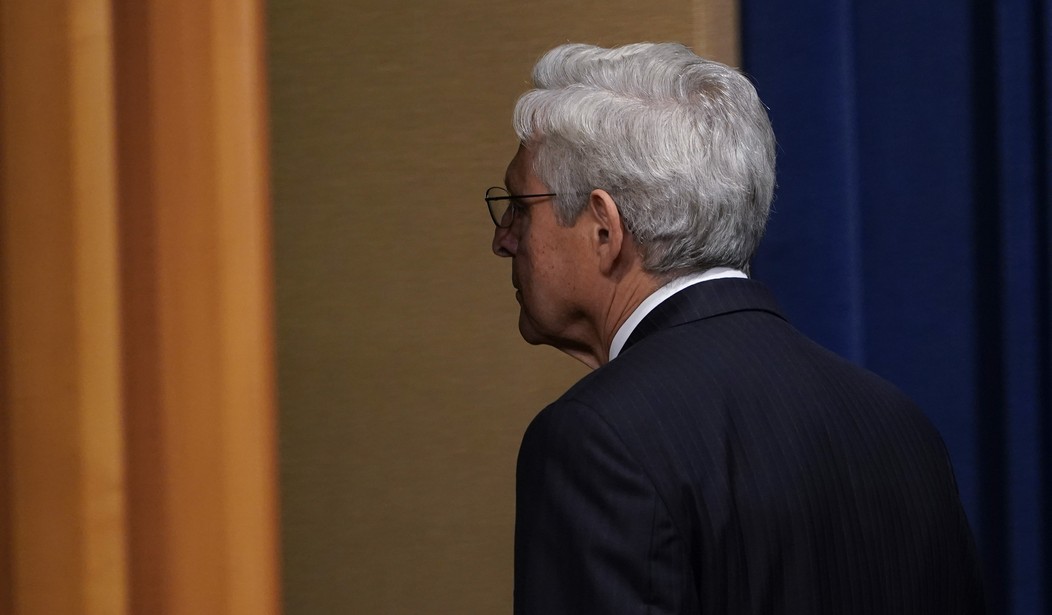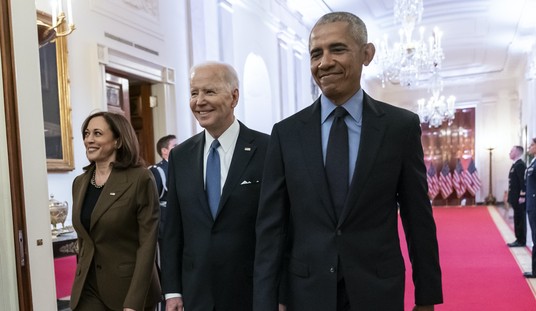There’s no doubt that being the attorney general of the United States is a big job, making it critical that the man or woman who holds the position knows what is going on in the vast bureaucracy of the Department of Justice. Sure, it’s impossible to know what every DOJ employee is doing every minute of every day, but shouldn’t the attorney general at least be able to answer for their own actions while on the job? Apparently, as Attorney General Merrick Garland demonstrated during his Judiciary Committee hearing this week, he doesn’t want to show that he actually knows much of…anything.
“Have you had personal contact with anyone at FBI headquarters about the Hunter Biden investigation?” asked Rep. Mike Johnson (R-LA).
“Uh, I don’t- I don’t recollect the answer to that question,” came Garland’s reply.
“I’m sorry, you don’t recollect whether you’ve talked with anybody at FBI headquarters about an investigation into the president’s son?” Johnson queried again with a righteous dose of disbelief.
“I don’t believe that I did,” Garland said again.
Recommended
Rep. Johnson also asked Garland who Weiss spoke with — as he’d testified he did previously before the U.S. Senate — about getting the necessary authority to bring charges against Hunter Biden in another judicial district without needing the partnership of an additional U.S. attorney.
Still, Garland refused to answer. “I’m not going to get into the internal deliberations of the department,” he excused.
When Johnson asked Garland about “any briefings or discussions” he had with Weiss about Hunter Biden, the attorney general — unsurprisingly — still played the part of a know-nothing and refused to respond to the actual question.
“I promised the Senate that I would not interfere with Mr. Weiss,” Garland said, evading the question. “I do not intend to discuss internal justice department deliberations whether or not I had them,” he added, confirming his intention was, in fact, to be as unhelpful as possible.
Still, Johnson continued trying to get answers. “Are you aware that FBI officials have come before this committee and they have stated that there was a cumbersome bureaucratic process that Mr. Weiss had to go through to bring charges in another judicial district?” he asked.
“I’m not aware but that’s not true,” Garland replied. Essentially, he’s arguing he has no idea about the subject, but he’s certain that it’s not true. That doesn’t pass muster. Even worse, when Johnson asked whether Garland’s denial of the claims meant the whistleblowers had lied to Congress under oath, Garland tried to make a 180 and responded, “I didn’t say that.”
In a surprise to no one, Garland also refused to answer when he was asked whether or not it was “standard procedure” for an investigation of Hunter’s alleged firearm-related crimes to take as long as it did in his case.
“Someone who bought Hunter Biden’s art ended up with a prestigious appointment to a federal position,” noted Rep. Matt Gaetz (R-FL). “Doesn’t it look weird that he’s become this immediate success in the art world as his dad is President of the United States? Isn’t that odd?”
“I’m not going to comment,” was Garland’s response. At least he said something in response to that question. When Gaetz asked whether the FBI lost track of the number of paid informants it had around the U.S. Capitol on January 6, Garland never answered.
Taking his run at getting perhaps one answer of use, Chairman Jordan asked Garland who decided to “let the statute of limitations lapse” on Hunter’s alleged tax crimes and “why they did it,” the attorney general — supposedly in charge of the Justice Department, meekly passed blame. “Weiss was the supervisor,” he said, again abdicating his role as the head of the DOJ and acting as though it was indecent for lawmakers to ask him about his actions as attorney general.
When Garland could find the fortitude to muster an answer to lawmakers’ questions, things didn’t go much better for Biden’s attorney general.
At one point, Chairman Jordan raised Garland’s previous Senate testimony in which he claimed that Weiss had “full authority” to pursue charges against Hunter Biden. At the time Garland made that claim under oath, Weiss’ attempt to prosecute Hunter Biden in Washington, D.C. had already failed due to the uncooperative U.S. Attorney in the nation’s capital. “You said he had complete authority but he’d already been turned down,” Jordan said of Garland’s dubious claim.
“I’m going to say again,” Garland replied, “no one had the authority to turn him down, they could refuse to partner with him.”
Whatever Garland calls the decision, it had the same effect: Weiss was prevented from beginning charges against Hunter Biden due to DOJ stonewalling.
The sheepish fear and lack of knowledge about what’s been going on at the Department of Justice displayed by Garland is either another phony act — part of the Biden administration’s attempts to avoid any and all responsibility for their actions — or it’s evidence that Garland lacks the capacity to serve in such a position. In either case, both scenarios are disqualifying for Garland.

























